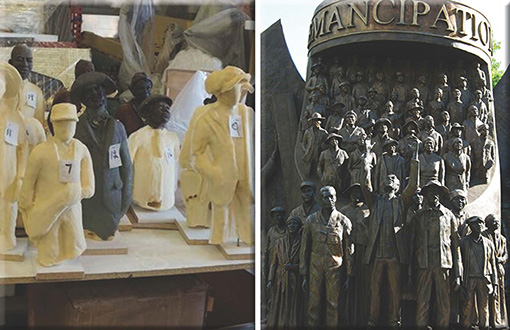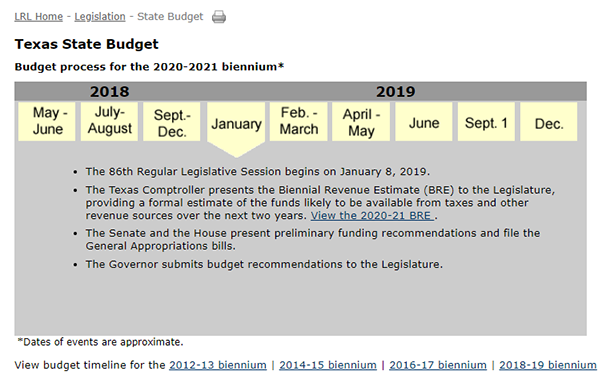This post includes a list of guides published by Texas legislative agencies to assist you in following the legislative process. These guides will help you track and read a bill, understand the terminology used in the Texas Legislature, learn about issues facing the Legislature, and much more.
The Legislative Process in Texas, prepared by the Texas Legislative Council (2018).
Summarizes how legislation moves from introduced bill to signed law.
How a Bill Becomes Law: 86th Legislature, prepared by the House Research Organization (2019).
Details the legislative process, with an emphasis on the Texas House Rules (HR 4, 86R) and their influence on procedures.
Reading Statutes and Bills, prepared by the Texas Legislative Council.
Presents a basic overview of Texas statutes and bills, as well as tips for reading and understanding them. (Now an online source; previously was available as a PDF.)
Texas Legislative Glossary, prepared by the Texas Legislative Council.
Defines terms related to the legislative process in Texas. (Now an online source; previously was available as a PDF.)
Research Spotlight: Legislative Lexicon, prepared by the Senate Research Center (2019).
Provides definitions of words, terms, and phrases used in the Legislature.
Writing the State Budget: 86th Legislature, prepared by the House Research Organization (2019).
Outlines the budget writing process in Texas and defines key terms.
Budget 101: A Guide to the Budget Process in Texas, prepared by the Senate Research Center (2019).
Explains how the budget is developed in Texas; designed for new staff or those unfamiliar with the budget process.
Topics for the 86th Legislature, prepared by the House Research Organization (2018).
Highlights many of the issues the 86th Legislature may consider during its 2019 regular session.

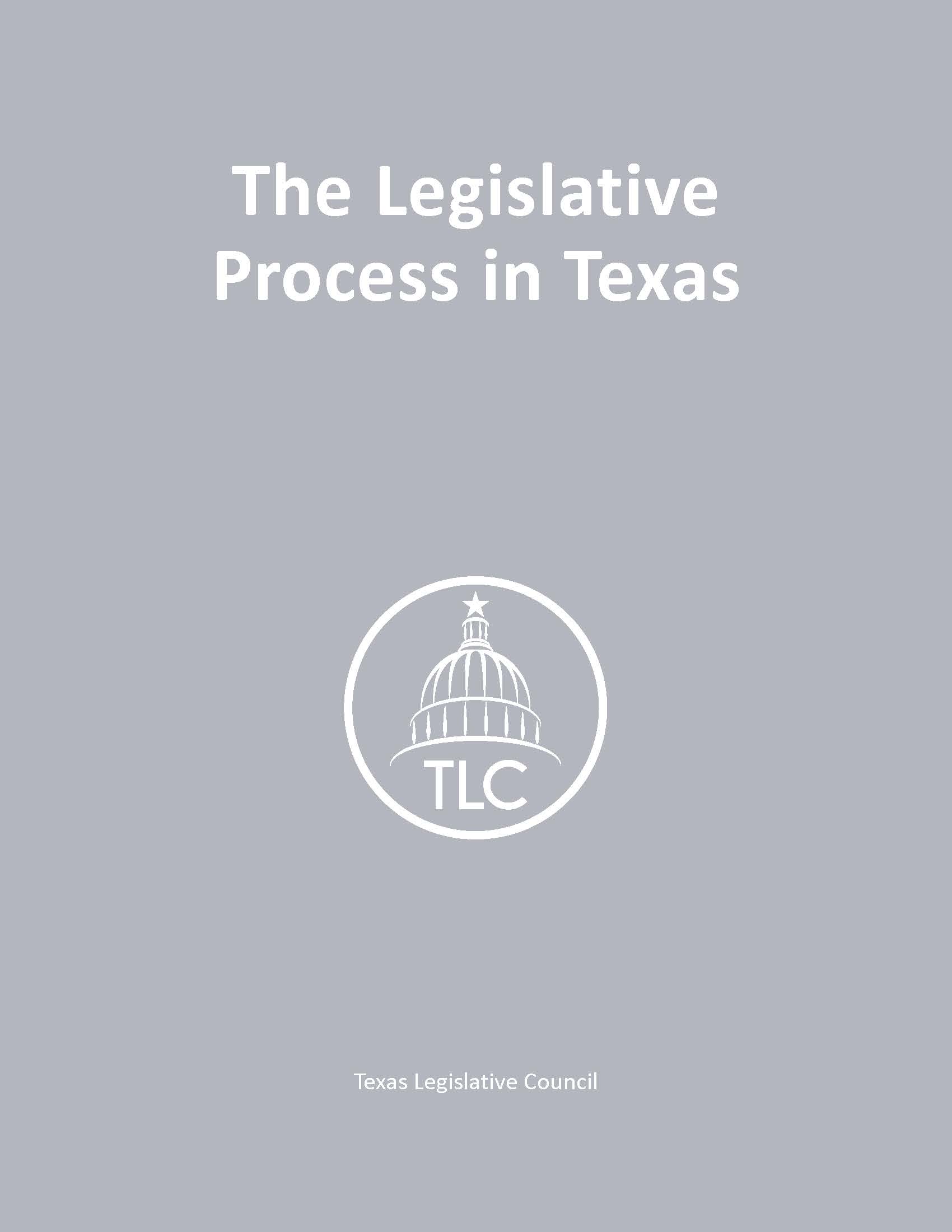
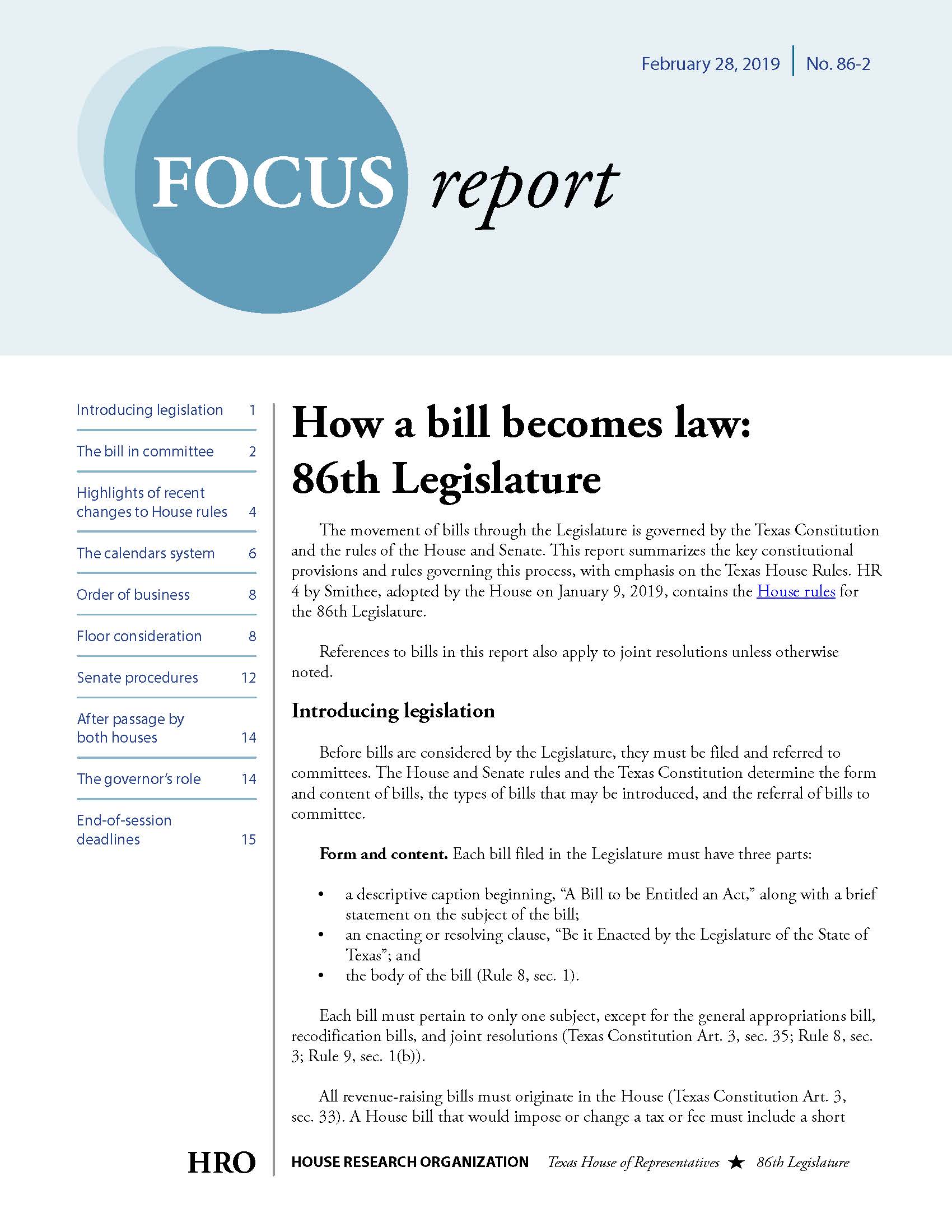
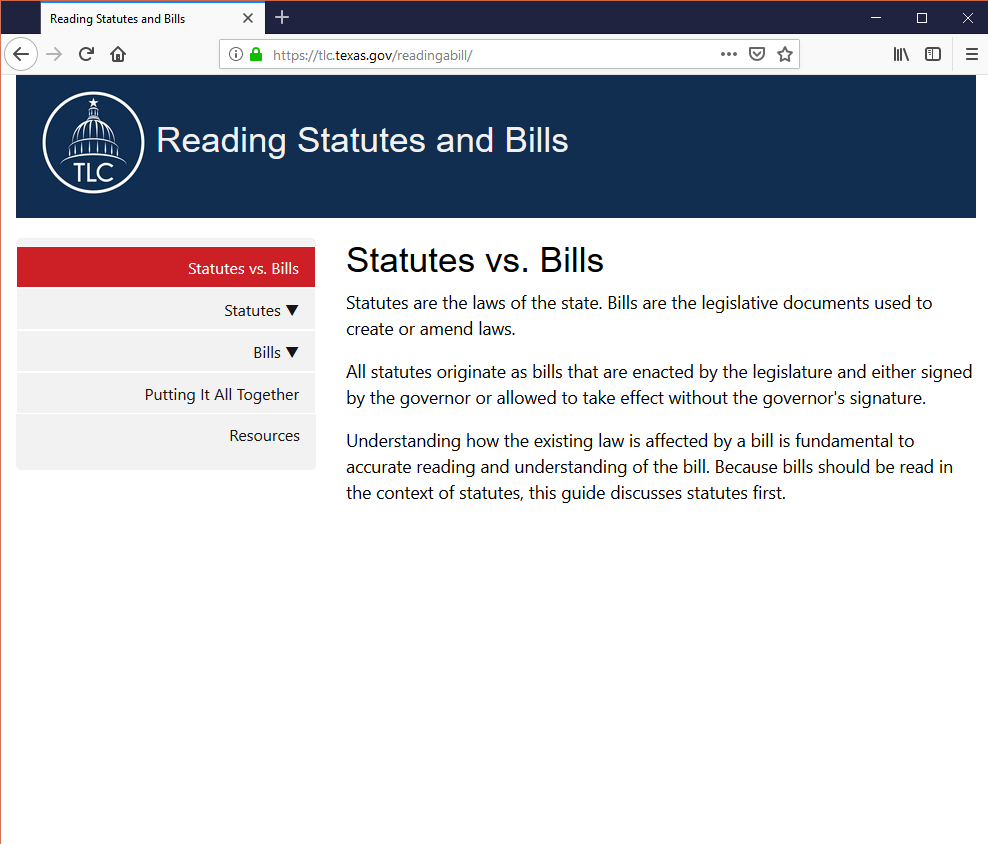

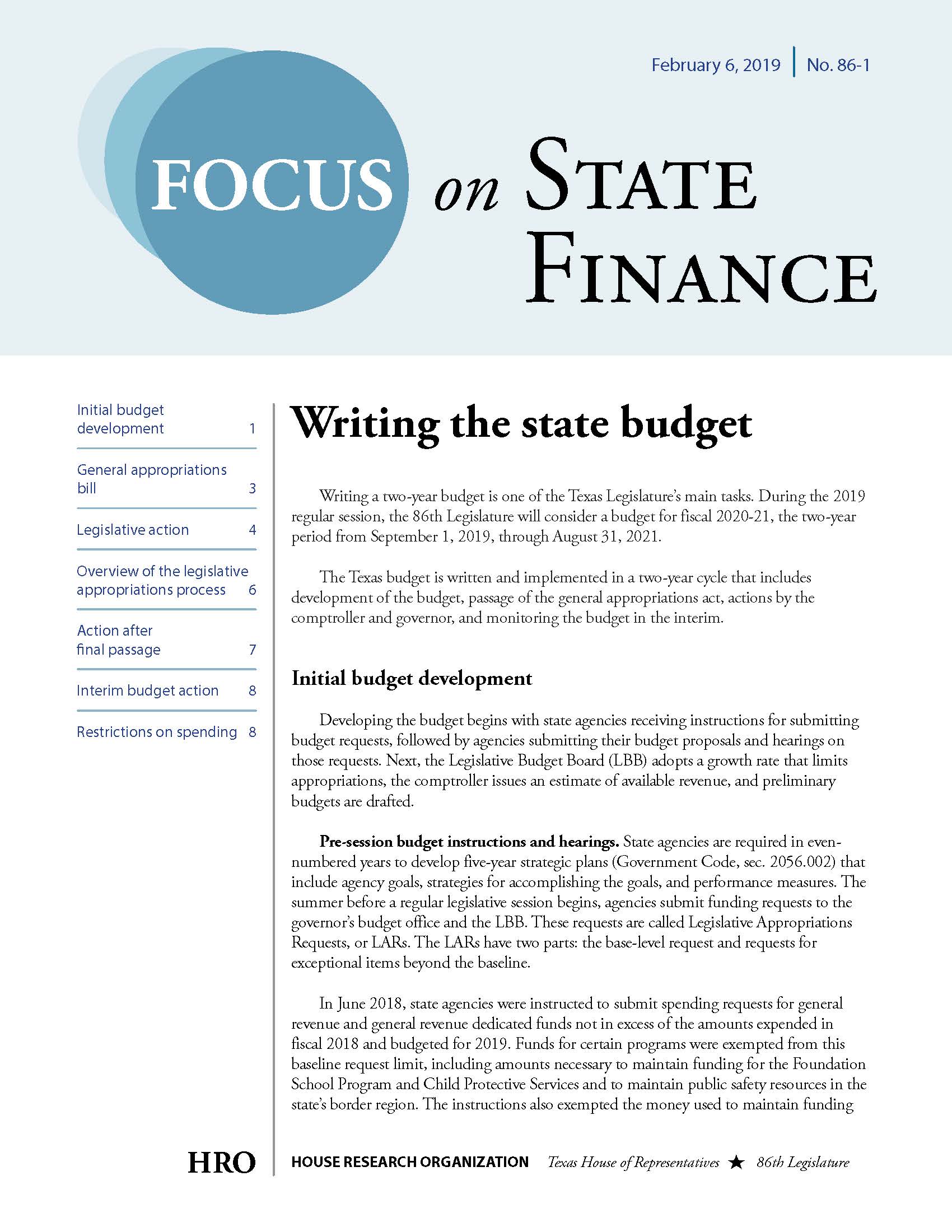
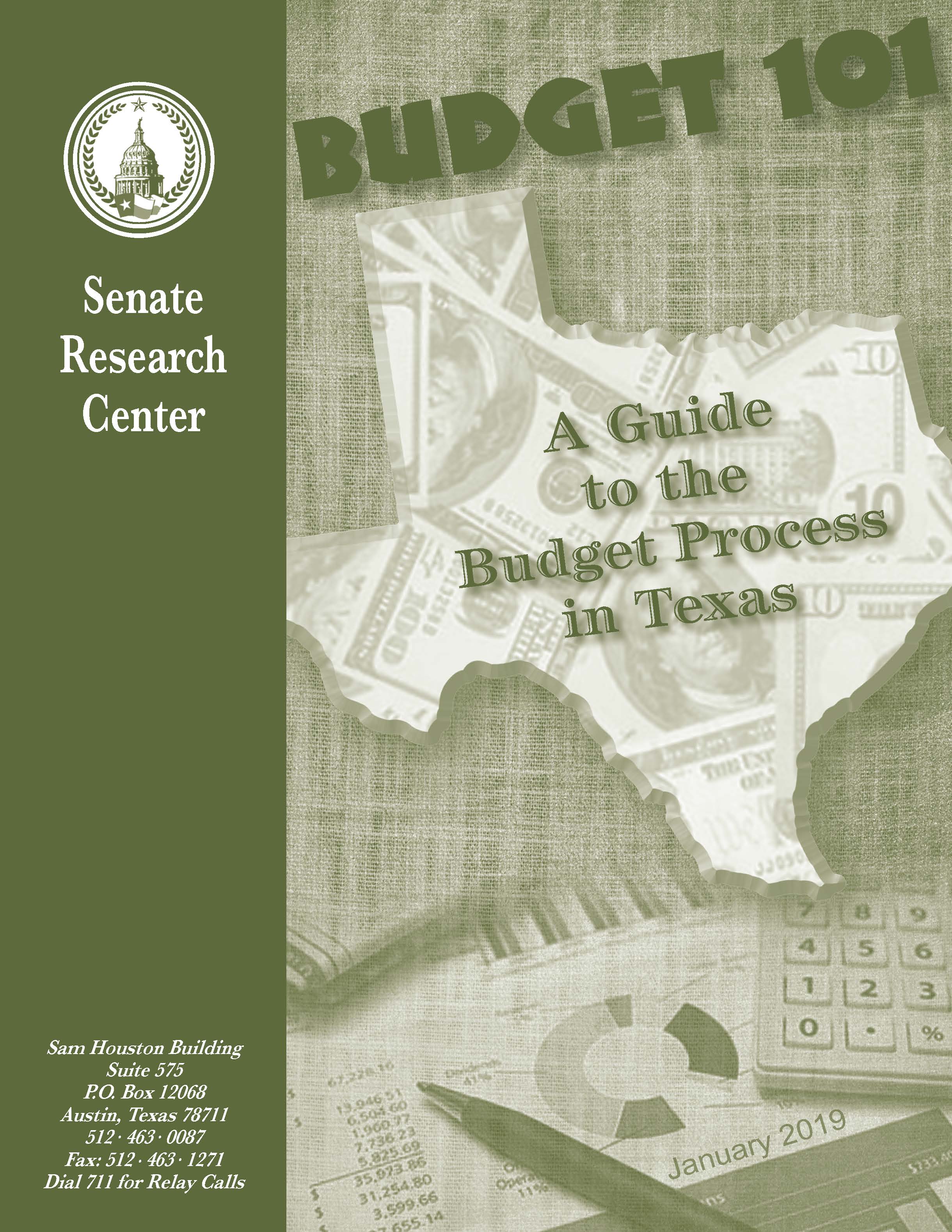

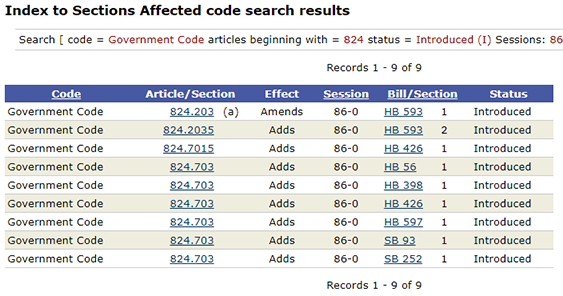
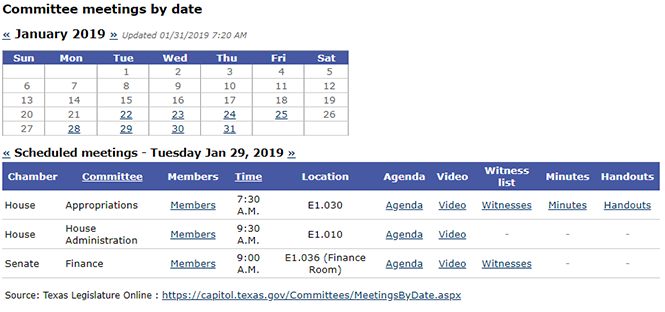
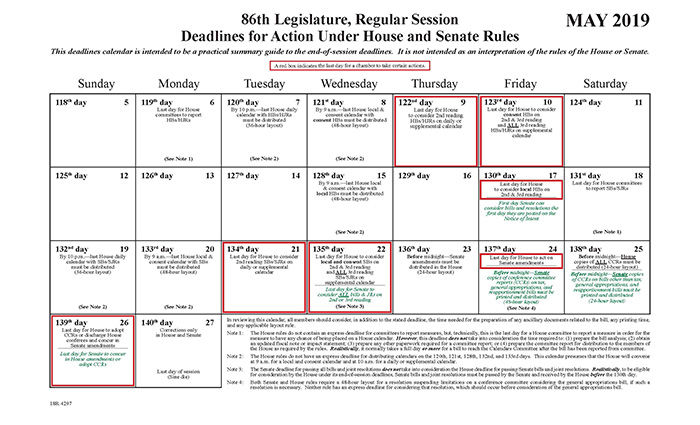
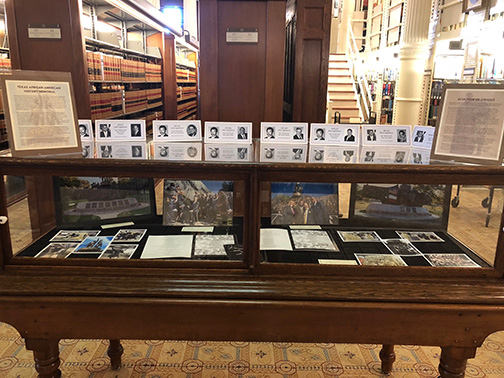 Entering the Capitol grounds from the south, one of the first monuments visitors see is the Texas African American History Memorial. Unveiled on November 19, 2016, the monument commemorates African American Texans and their contributions to the history and evolution of the Lone Star State.
Entering the Capitol grounds from the south, one of the first monuments visitors see is the Texas African American History Memorial. Unveiled on November 19, 2016, the monument commemorates African American Texans and their contributions to the history and evolution of the Lone Star State. 